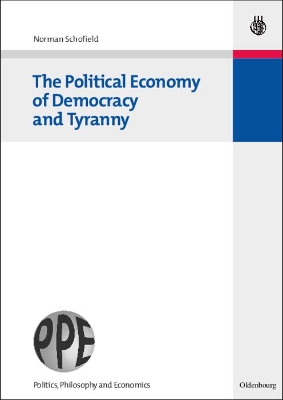One theme that has emerged from the recent literature on political economy concerns the transition to democracy: why would dominant elites give up oligarchic power? This book addresses the fundamental question of democratic stability and the collapse of tyranny by considering a formal model of democracy and tyranny. The formal model is used to study elections in developed polities such as the United States, the United Kingdom, the Netherlands, Canada, and Israel, as well as complex developing polities such as Turkey. The key idea is that activist groups may offer resources to political candidates if they in turn adjust their polities in favor of the interest group. In polities that use a "first past the post" electoral system, such as the US, the bargaining between interest groups and candidates creates a tendency for activist groups to coalesce; in polities such as Israel and the Netherlands, where the electoral system is very proportional, there may be little tendency for activist coalescence. A further feature of the model is that candidates, or political leaders, like Barack Obama, with high intrinsic charisma, or valence, will be attracted to the electoral center, while less charismatic leaders will move to the electoral periphery. This aspect of the model is used to compare the position taking and exercise of power of authoritarian leaders in Portugal, Argentina and the Soviet Union. The final chapter of the book suggests that the chaos that may be induced by climate change and rapid population growth can only be addressed by concerted action directed by a charismatic leader of the Atlantic democracies.
- ISBN10 3486588265
- ISBN13 9783486588262
- Publish Date 4 November 2008
- Publish Status Active
- Publish Country DE
- Publisher De Gruyter
- Imprint De Gruyter Oldenbourg
- Format Paperback
- Pages 352
- Language English
- URL https://degruyter.com/isbn/9783486588262
